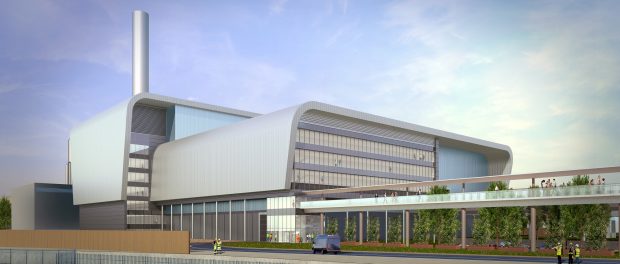Plans for North Lincolnshire Green Energy Park given green light

The North Lincolnshire Green Energy Park (NLGEP) has been granted a Development Consent Order (DCO) by the Secretary of State for Energy Security and Net Zero.
The approval marks a significant milestone for the project, which is designed to support the UK’s net-zero ambitions by providing low-carbon energy and supporting more sustainable management of waste, while creating regional jobs and investment.
Located at the Flixborough Industrial Estate in North Lincolnshire, the NLGEP will include an Energy Recovery Facility that will prevent up to 760,000 tonnes of waste from going to landfill each year – instead using the household and commercial waste to generate enough low-carbon energy to power over 221,000 homes. In addition, the NLGEP will incorporate a plastic recycling facility, where waste plastics will be cleaned and sorted to be processed and reused in new products.
A key factor in the Secretary of State’s decision was the recent ‘Residual waste infrastructure capacity note’ (Dec 2024) from the Department for Environment, Food & Rural Affairs which highlighted that there is a need for additional waste processing capacity in this region of England, to provide an alternative treatment option to landfill.
As well as preventing greenhouse gas emissions from being released from landfill by diverting waste into energy recovery, the project has committed to carbon capture, with the ability to capture up to 650,000 tonnes of CO₂ per year. It is planned to link to the proposed Humber Carbon Capture Pipeline which will transport CO₂ for secure offshore storage in the North Sea. Some of the captured carbon dioxide will also be used on site in the recycling of bottom ash and fly ash produced by the energy recovery process, transforming it into materials for the construction industry.
The NLGEP will use electricity generated through the energy recovery process to create a source of low carbon hydrogen through electrolysis. This hydrogen could then be used as a clean fuel for transport, in industrial processes, or injected into the gas network to help decarbonise energy supplies. The site will also include energy storage in the form of batteries and hydrogen storage. Heat and energy produced by the energy recovery and carbon capture processes will be supplied to local homes and businesses through a local district heat network.
The Energy Recovery Facility is designed to the highest environmental standards and is required by Defra to meet the R1 standards for energy recovery, rather than incineration. The RI efficiency is further enhanced with the commitment to deliver waste heat to the district heat network which will contribute to the decarbonisation of up to 6,000 new homes in Scunthorpe, helping to reduce energy bills.
Colin Hammond from North Lincolnshire Green Energy Park Ltd said: “Decarbonising our waste industry and making the best use of our resources are two of the most important challenges of our times. The North Lincolnshire Green Energy Park is a pioneering project that will meet these challenges head on and support the UK’s journey to net zero. We’re bringing together proven technologies in an innovative way to recover energy from waste and use as many of the by-products as possible. This is the circular economy in action. It’s been a long journey to get to this point, but this decision will truly put the region on the map as leading the green revolution.”
The project will also bring significant benefits to the regional economy. It is expected to create up to 257 new permanent jobs, with an additional 600 jobs during construction, as well as 100 new apprenticeships, postgraduate research opportunities, and retraining initiatives to develop skills for a net-zero economy.
A new visitor centre will be dedicated to educating children and adults on how to live a more sustainable life. The project will also enhance local biodiversity through new wetland habitats and woodland corridors, while providing new walking and cycling routes for the local community to enjoy.
With the DCO in place, the next steps will focus on advancing discussions with engineering and construction contractors, finalise funding partners and formalise the waste contracts to bring the project to life. It is anticipated that work could start on site in 2026 with the NLGEP operational in 2030.

